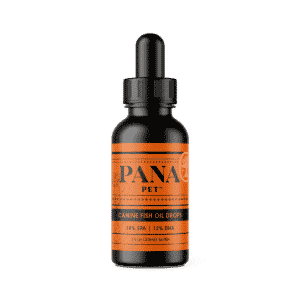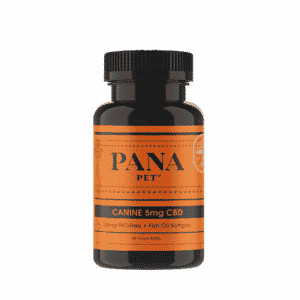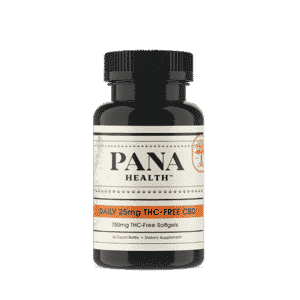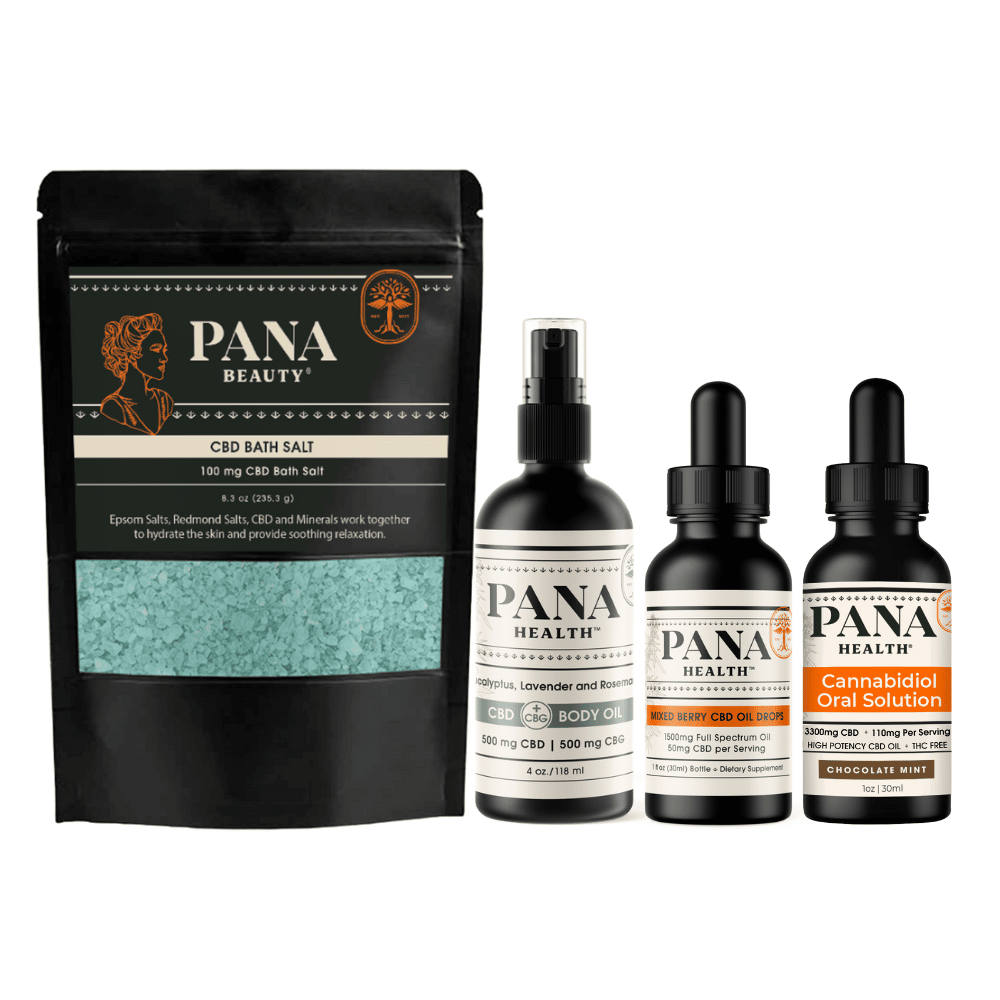We all love our pets. They are members of the family and deserve to be treated as such. So, when a pet is unhappy and anxious, it tends to make everyone else unhappy. What is a pet owner to do when their beloved dog or cat has an anxious disposition? After all, there are not as many resources for a pet’s state of mind as there is for a person’s mental state.
Luckily, recent research has been pointing at a more holistic approach for helping a pet deal with nervousness: cannabidiol (CBD).
Back to basics: defining CBD
Before we can talk about what CBD may be able to offer your pet, it is best we cover what CBD is and why it is so popular right now.
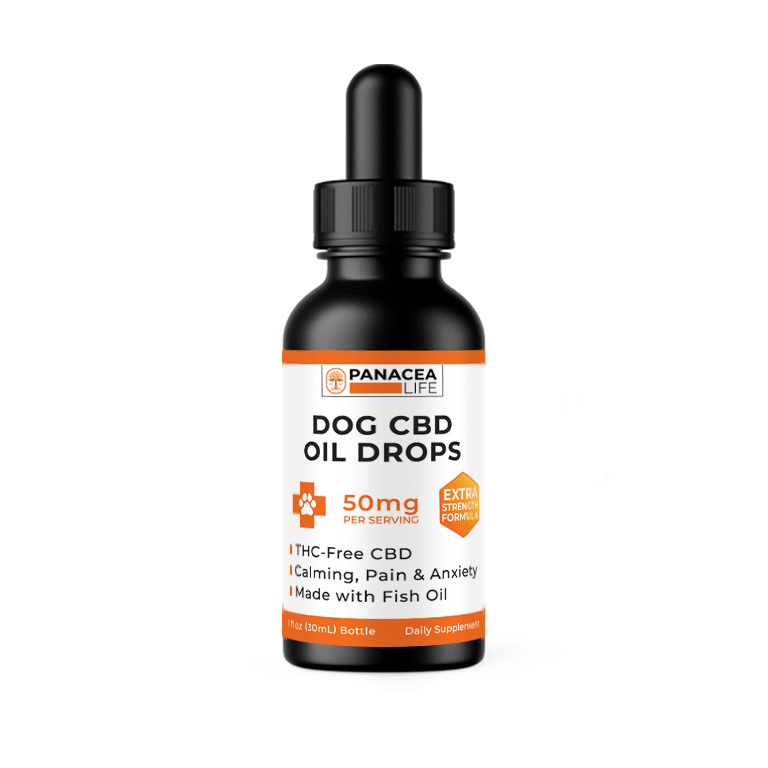
CBD is a chemical compound known as a cannabinoid. These are compounds that are commonly found in cannabis plants, like hemp and marijuana. There are many cannabinoids out there. In fact, scientists have identified over 113 so far, but believe that there are more yet to be discovered. With so many out there, it is only natural that you have heard of more than just one of them.
The other cannabinoid that you have likely heard of is tetrahydrocannabinol (though, you are probably more familiar with its acronym, THC). THC is arguably more well-known than CBD. This is because of the effect that it creates in humans. It is psychoactive, meaning that it creates the intoxication (the high) that is so commonly associated with cannabis.
Because CBD and THC are both cannabinoids, they are often thought to be practically the same. However, that is not the case. They have a lot of differences, but there is one in particular that you should be aware of. CBD is not psychoactive. It does not get its user high or inebriated in any way. It is also important to note that THC is considered to be highly toxic to animals. You should never give your pet THC.
Most CBD manufacturers extract the cannabinoid from hemp rather than marijuana. There are a couple of very good reasons for this. One of them is that hemp has a very high concentration of CBD and a very low concentration of THC (less than 0.3%). Marijuana, on the other hand, is the opposite. It has low levels of CBD and high levels of THC. This makes hemp much easier to get CBD from.
The other good reason is that hemp is federally legal in the United States, but marijuana is not. This is again because on the levels of THC in each plant. Marijuana’s high levels means that the federal government is hesitant to legalize it. But hemp having a low enough level to not cause any actual intoxication, removes any hesitations surrounding it. However, some states have legalized marijuana, either only for medical purposes or for general use by anyone over the age of 21.
So, now that we have covered what exactly CBD is, let’s talk about how it could help your pet.
What could it do for pets?
It is not uncommon for dogs and cats to have nervous dispositions. Sometimes it is genetic, sometimes it is due to a previous trauma. Whatever the reason, it can lead to a lot of grief for both the pet and the owner. Many owners have stories about upset pets during holidays like the Fourth of July where there are firework shows. Others have stories about angry calls from neighbors complaining about a pet howling when left home alone. So, how does a pet owner keep their pet calm?
CBD may be able to help lower mental stress. One of the main things that CBD is known for is being able to help people achieve a greater sense of calm. There have been many studies that have focused on this very subject. For example, this study put test subjects in a very stressful situation. Some of the subjects were give CBD before, others were not. Those who had been given the CBD were more confident and found the situation easier to deal with than those who were not given the cannabinoid.
Another study used mice to understand what CBD many be able to do for an anxious disposition. The researchers used chronically stressed mice, giving some of them CBD and giving others nothing. They concluded that the mice given the CBD were much calmer than the others.
Unfortunately, there are not many studies out there looking at how CBD effects the state of mind of dogs and cats. However, like humans, these animals have Endocannabinoid Systems. This is a series of receptors that cannabinoids interact with. This system and its interactions with CBD are often cited as the reason that CBD may be able to help calm people. This could mean that it could help your pet in a similar way.
How do I give CBD to my pet?
Most dog owners will attest that their dog will eat just about anything. However, many of those same people will also be able to tell you just how difficult it can be to get a dog to take a pill. Of course, getting a cat to eat anything that is not wet cat food or something that they are not allowed to eat (why do they love chewing on plastic?) can be very difficult. So, how do you get your pet to take something that has an earthy taste, like CBD? You would be surprised at the options that are available.
Just like for humans, there are CBD edibles for pets. These are usually things like normal pet treats but made with CBD instead. These may take a little while before they start working for your pet, because the treat needs to digest before they can start working.
There are also CBD tinctures and oils that you can give your pet. You can mix these in with their regular food. However, like with the CBD treats, it may take a little while for the CBD to start working when administered in this way. If you have a pet that is a picky eater, they might taste the CBD in the food and will not eat it. If that is the case for you, you can instead rub the CBD on the inside of your pet’s jowls or onto their gums. The CBD absorbs into the system from there.
Of course, there are also CBD topicals that are made for pets. These you simply rub into your pet’s paws. However, if you have a squirmy pet, it may not be the best option.
It is best to consult with your veterinarian before starting your pet on CBD. Especially if your furry friend is already taking medication, as some medications do not work as well with CBD. Your veterinarian should know whether or not that will be a problem for your pet.
When you first start giving your pet CBD, you should keep the dosage low for the first little while, to see how they react to it. Keep an eye on their behavior and eating habits. If they seem too lethargic or they are eating less than normal, it is likely that they have been given too much CBD. The cannabinoid does not appear to be dangerous for most animals, but it is not something that anyone or any animal will want to take too much of.
Be sure, when buying a CBD product for your pet that the product is meant for pets. Other products are made with humans in mind and are made differently. It is likely better for your furry friend to use only products that are made with them in mind.
It is also a good idea to keep your pet’s CBD products separate from their regular food and treats, especially if you give your pet CBD treats. They often look like regular treats and may be easily mixed up by someone who is not familiar. As mentioned earlier, CBD does not appear to be dangerous for pets, but it is still not something you would want to give your furry friend too much of.
Unhappy pets often lead to unhappy owners. If your pet deals with an anxious disposition or separation anxiety, you may want to look into CBD. It may be able to help them achieve a greater sense of calm, giving both you and them some much needed, much deserved peace.
If you are looking for a place to start looking into getting some CBD, then you are on the right site. Here on the Panacea Life Sciences website, we have a whole line of high-quality CBD products. There is something for everyone, including your furry friends. On our site we also have many articles exploring several different areas of CBD. If you are curious about the cannabinoid and would like to learn more about it, then feel free to check them out. If the articles do not answer your questions, you can contact us either on the website or by emailing us at [email protected].


